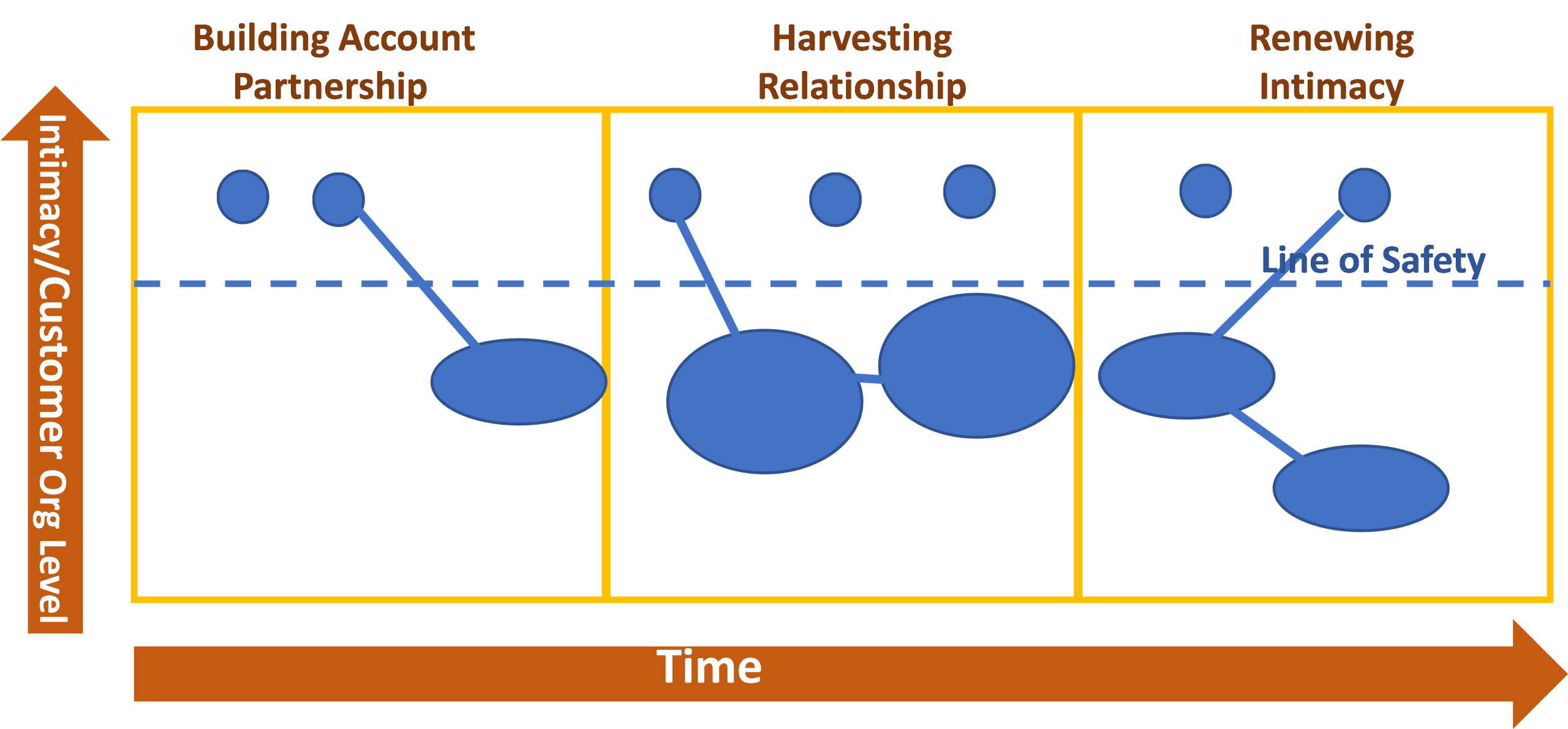As mentioned in earlier blogs, B2B companies in mature markets must manage complex businesses in order to grow and sustain reasonable margins. We believe the best way to view the business is through the lens of market segment needs and share of wallet. This is because of the “law of intimacy” – if you are solving the problems your customers care about, they are more likely to purchase your more commoditized products and services with less concern of price. In addition, your portfolio mix at the account level will provide greater margins. If you offer higher-end services (e.g., specific targeted software), the margin mix will improve. Therefore, account (or market segment) portfolio matters a great deal. Furthermore, how that portfolio performs and drives account journeys becomes paramount.
This idea is not controversial, but it does fly in the face of many companies currently trying to become or, at least, portray themselves as software companies or XaaS companies. In general, we applaud a growing percent of revenue from these sources, but we believe it is only one part of your account (market segment) portfolio. If Xaas or software revenue is taken in isolation, it is just a short-term step in the company extending its commoditized products.
Let’s take a closer look at Account (Market Segment) Journeys. First, why do we group Accounts and Market Segments together? Well, often many issues are shared across a market segment – these shared priorities are likely the rationale for grouping accounts together in a segment – but certain accounts (e.g., large key customers) have their own unique priorities that should be taken into consideration as well.

Account Journeys can be thought of as the sequence of pre-planned deals at a given account. In the visual above, the blue circles represent the products and services you intend to provide to a given account over time. Revenue is indicated by size of the shape and the “Line of Safety” highlights the offers that are most relevant to top-level executives. Also, it should be noted that Account Journeys are distinct from an offer journey or Service Chain, which are specific to a single transaction or solution.
The Account Journey must take into account three key things:
1. Developing an Intimate Partnership – This is accomplished by working with the account on the topics that matter to key executives. These are usually (but not exclusively) advisory projects developed with the segment’s needs in mind and, therefore, do not necessarily need to relate directly to your core products or services. This concept can be challenging to those accustomed to leveraging advisory services purely as “wrap around services” that are explicitly connected to core products and services.
2. Sequencing the Revenue Drivers (harvesting) – This is focused on driving significant revenue through your core product and services. These revenue drivers should be phased in after intimacy is established, because they can be sold more easily once you have worked with the executive team as a problem solver. This “halo effect” provided by intimacy opens the door for the account to see you as a partner, rather than just a vendor. In addition, creating Service Chains to pull-through your core solutions will also allow for quicker results (for more details, read our blog series on Service Chains).
3. Renewing Intimacy with Accounts – This mostly pertains to staying relevant between buying cycles and/or improving a damaged account relationship. The actual tactics function similarly to the “Developing an Intimate Partnership” mentioned earlier – i.e., working on the things that matter to the most to the account and continuously providing value.
A well-structured Account Journey should lead to closing larger deals, in addition to a more impactful relationship with an account. It allows you to meet the needs of your key customers, while fulfilling your desire to become a single sourced provider of your core products and services.
Written by: Dean McMann
About the Author: Dean McMann is a Founding Partner at McMann & Ransford with 35+ years of experience in consulting and professional services. He is a sought-after expert and speaker on topics of: B2B differentiation, professional services best practices, and overcoming commoditization. In addition to his extensive experience in the Professional Services space, Dean also serves on the board of various non-profit organizations.
